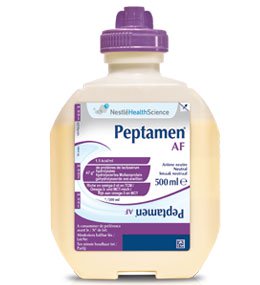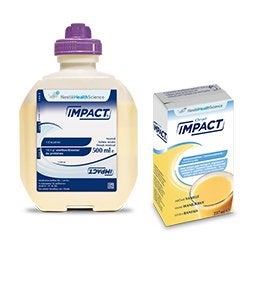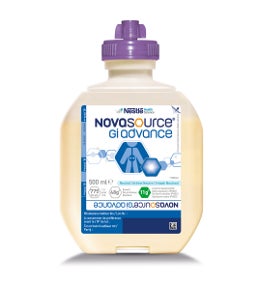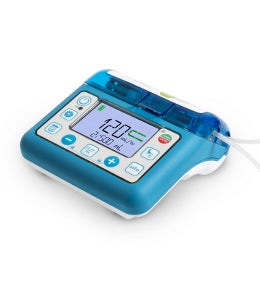Alberda et al. The relationship between nutritional intake and clinical outcomes in critically ill patients: results of an international multicenter observational study. IntensiveCare Med 2009; 35:1728 - 1737.
THE NESTLÉ HEALTH SCIENCE RANGE OF TAILOR-MADE NUTRITIONAL SOLUTIONS
NUTRITION MONITORING IN THE ICU CAN IMPROVE PATIENT OUTCOMES
Despite nutritional support being part of the standard of care for ICU patients, a study conducted in 167 ICUs across 37 countries showed that patients in the ICU receive only 59% of the prescribed nutrition plan1.
Caloric deficit is associated with an increase in ventilator days, complications and length of stay in the ICU2, while greater nutritional intake received during the first week in the ICU is associated with longer survival time and faster physical recovery up to 3 months3.
PDMS CONNECTIVITY HELPS TO ASSURE PROPER NUTRITION AND MAY SUPPORT POSITIVE OUTCOMES IN THE ICU.
Makes the feeding process visible4,5
- Integration of nutritional advice and automatically generated feedback (pop up warnings) to users enables quick clinical response - Comparison to target to better adapt of feeding rates to avoid energy deficit
Facilitates adequate energy delivery and balance monitoring4,5,6
- Integration of enteral nutrition delivery into total fluid and electrolyte balance as well as glucose charts - Supports standardization of prescription - Facilitates adequate protein, carbohydrates and lipid delivery
Allows automated data collection and control4,6
- Reduces workload associated with data manual entry and computation allowing nurses to spend more time with the patient - Reduces number of missing data - Automated extractions enable the continued quality control process, feedback loops and adequate follow-up based on guidelines
Caloric deficit is associated with an increase in ventilator days, complications and length of stay in the ICU2, while greater nutritional intake received during the first week in the ICU is associated with longer survival time and faster physical recovery up to 3 months3.
PDMS CONNECTIVITY HELPS TO ASSURE PROPER NUTRITION AND MAY SUPPORT POSITIVE OUTCOMES IN THE ICU.
Makes the feeding process visible4,5
- Integration of nutritional advice and automatically generated feedback (pop up warnings) to users enables quick clinical response - Comparison to target to better adapt of feeding rates to avoid energy deficit
Facilitates adequate energy delivery and balance monitoring4,5,6
- Integration of enteral nutrition delivery into total fluid and electrolyte balance as well as glucose charts - Supports standardization of prescription - Facilitates adequate protein, carbohydrates and lipid delivery
Allows automated data collection and control4,6
- Reduces workload associated with data manual entry and computation allowing nurses to spend more time with the patient - Reduces number of missing data - Automated extractions enable the continued quality control process, feedback loops and adequate follow-up based on guidelines
1. Alberda C, Gramlich L, Jones N, et al. The relationship between nutritional intake and clinical outcomes in critically ill patients: results of an international multicenter observational study. Intensive Care Med 2009; 35:1728 – 1737. 2. Villet S, Chiole ro RL, Bollmann MD, et al. Negative impact of hypocaloric feeding and energy balance on clinical outcome in ICU patients. Clin Nutr 2005; 24:502–509. 3. Wei X, Day AG, et al. The Association Between Nutritional Adequacy and Long-Term Outcomes in Critically Ill Patients Requiring Prolonged Mechanical Ventilation: A Multicenter Cohort Study. Crit Care Med. 2015 Aug;43(8):1569-79. 4. M Berger, Y. Que. Bioinformatics assistance of metabolic and nutrition management in ICU. Curr Opinion in Clin Nutrition and Metabolic Care 2011, 14:202-208. 5. RJM Strack Van Schijndel et al. Computer-aided support improves early and adequate delivery of nutrients in the ICU. The NL J of Medicine. 2998, Vol. 67, No11: 388-393. 6. M Berger et al. Impact of computerized information system on quality of nutritional support in the ICU. Nutrition 22, 2006: 221-229
Read more
Close





